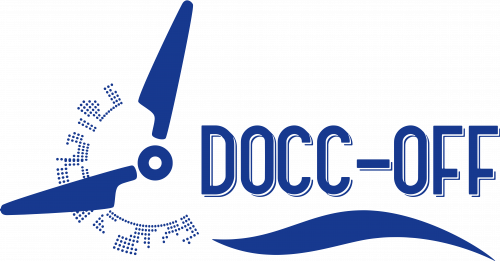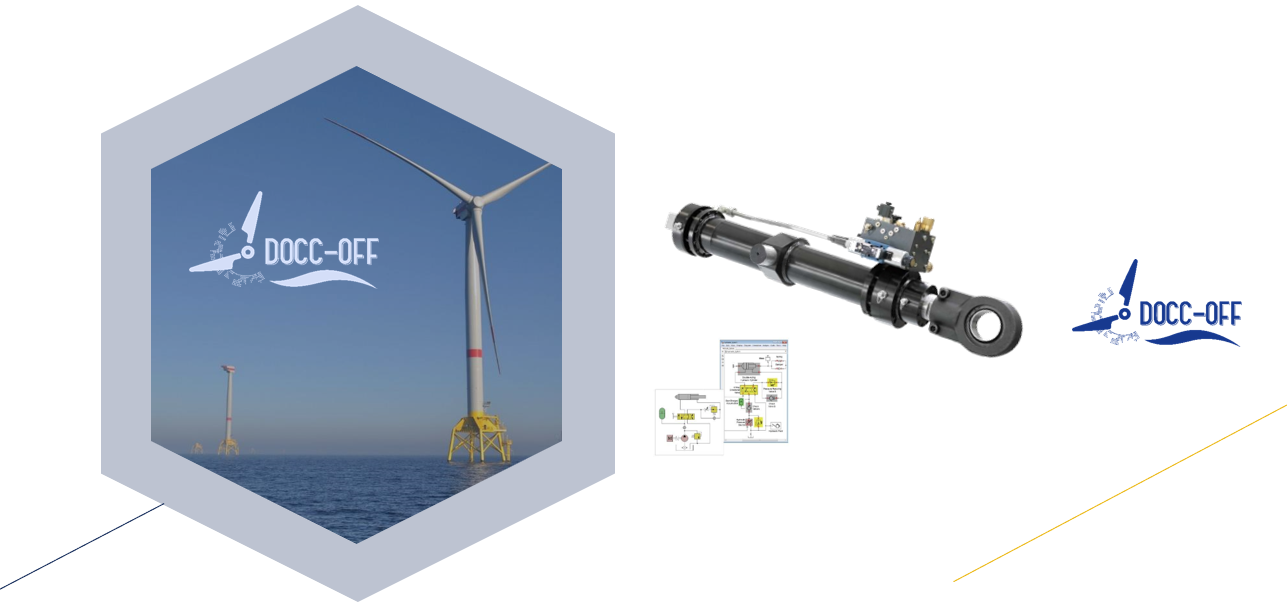
By using the knowledge extracted from operational data, the European project DOCC-OFF - "Digitalization Of Critical Components in OFFshore wind turbines” - aims to demonstrate the impact of sensing and remote monitoring in the optimization of the design, the increase of the performance and the reduction of maintenance costs of critical subsystems in offshore wind turbines. This way making offshore wind a competitive technology between other power generation alternatives.
Context
Wind turbine original equipment manufacturers (OEMs) and some components manufacturers have already started to implement sensors and data collection systems in the wind turbines they are providing and installing. However, efficient proven concepts have not been demonstrated yet, due to two main gaps or challenges to be overcome:
- The technological gap: significant technology validation is still needed to achieve new products and services ready for commercialization. Sensors and remote monitoring systems are yet to be extensively implemented in offshore energy generation facilities, as they currently provide little information that may be used in advance to any incident. Most problems are found once they occur, causing high losses.
- The data access gap: access to the data collected from the wind energy turbines in operation is limited only to windfarm developers (the “data owners”) and OEMs (through exclusive agreements with their customers). Therefore, most European components suppliers cannot obtain, manage, analyze and learn from the performance data produced by their components in real-life operation, missing that way the opportunity to improve their competitiveness and increase the added-value of the products through digitization.
Therefore, DOCC-OFF focuses on addressing the technology gap in the pitch system digitalization and the real data availability for a reliable validation and demonstration process.
Goals
The European project "Digitalization Of Critical Components in OFFshore wind turbines” aims to demonstrate the impact of sensing and remote monitoring in the optimization of the design, the increase of the performance and the reduction of maintenance costs of critical subsystems in offshore wind turbines.
It pursues to use the knowledge extracted from the operational data to improve the designs of the wind turbine components, increasing their reliability, productivity, energy efficiency and understanding the interaction with other components under real operating conditions.
The results will have a relevant impact on the improvement of competitiveness of the DOCC-OFF partners (but also of other companies along the offshore wind value chain), making offshore wind a competitive technology between other power generation alternatives traduced into OPEX and CAPEX reductions.
Approach
The main challenge of DOCC-OFF will be to validate and to demonstrate the sensors, remote monitoring systems and big data analytics tools that will allow to obtain data from the critical wind turbine components and to extract value out of them in order to deliver the defined objectives.
Project partners
DOCC-OFF, lead by the Basque Energy Cluster, is formed by a consortium of four partners from two regions that are committed to develop the demonstration project in collaboration:
- HINE Renovables (ES), manufacturer of offshore wind turbine components,
- NEM Solutions (ES), a big data and data analytics company,
- Sirris-OWI-Lab (BE), a research centre with testing facilities for wind turbine systems,
- Basque Energy Cluster (ES), a cluster association representing a full wind energy value chain.
Financial
DOCC-OFF has a budget of €1M and it is financed by the European Union´s Maritime and Fisheries Fund.
Timing
The project kick off was on 21 January 2020.



